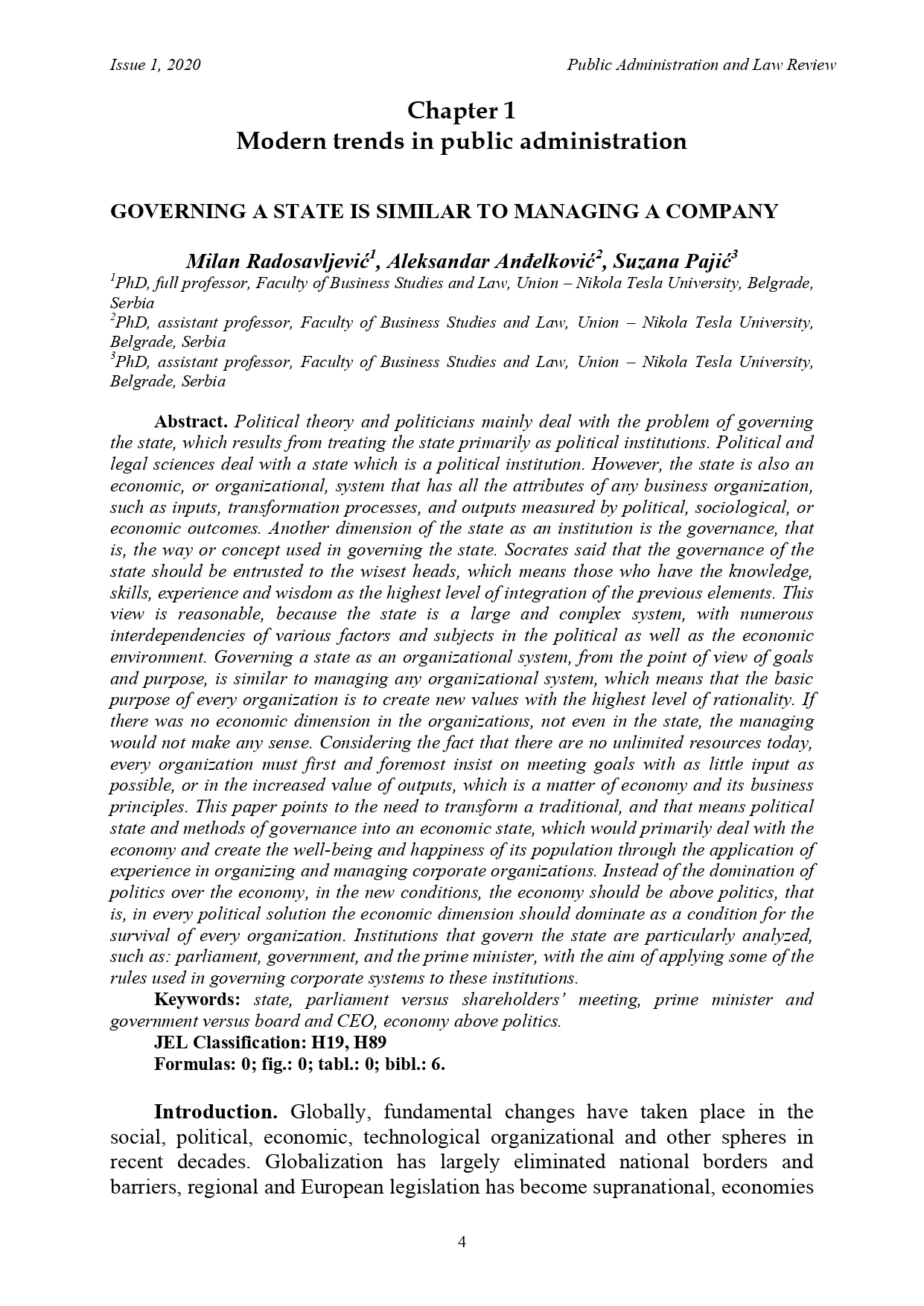GOVERNING A STATE IS SIMILAR TO MANAGING A COMPANY
DOI:
https://doi.org/10.36690/2674-5216-2020-1-4-11Keywords:
state, parliament versus shareholders’ meeting, prime minister and government versus board and CEO, economy above politicsAbstract
Political theory and politicians mainly deal with the problem of governing the state, which results from treating the state primarily as political institutions. Political and legal sciences deal with a state which is a political institution. However, the state is also an economic, or organizational, system that has all the attributes of any business organization, such as inputs, transformation processes, and outputs measured by political, sociological, or economic outcomes. Another dimension of the state as an institution is the governance, that is, the way or concept used in governing the state. Socrates said that the governance of the state should be entrusted to the wisest heads, which means those who have the knowledge, skills, experience and wisdom as the highest level of integration of the previous elements. This view is reasonable, because the state is a large and complex system, with numerous interdependencies of various factors and subjects in the political as well as the economic environment. Governing a state as an organizational system, from the point of view of goals and purpose, is similar to managing any organizational system, which means that the basic purpose of every organization is to create new values with the highest level of rationality. If there was no economic dimension in the organizations, not even in the state, the managing would not make any sense. Considering the fact that there are no unlimited resources today, every organization must first and foremost insist on meeting goals with as little input as possible, or in the increased value of outputs, which is a matter of economy and its business principles. This paper points to the need to transform a traditional, and that means political state and methods of governance into an economic state, which would primarily deal with the economy and create the well-being and happiness of its population through the application of experience in organizing and managing corporate organizations. Instead of the domination of politics over the economy, in the new conditions, the economy should be above politics, that is, in every political solution the economic dimension should dominate as a condition for the survival of every organization. Institutions that govern the state are particularly analyzed, such as: parliament, government, and the prime minister, with the aim of applying some of the rules used in governing corporate systems to these institutions.
Downloads
References
Brown, L. (1979): Svijet bez granice, Globus, Zagreb.
Ferguson, N. (2013): Civilizacija, Službeni Glasnik, Beograd.
Obradović, M. (2014): Država funkcioniše kao preduzeće, Nova ekonomija br. 6, Beograd.
Pešić, Z. (2011): Politički sistem, Niš.
Radosavljević, Ž. (2017/18): Lectures on doctoral studies in the academic year 2017/18 at the study program Management and Business, Faculty of Business Studies and Law, Union-Nikola Tesla University in Belgrade, Serbia.
Vasović, V. (2012): Savremene demokratije, treće izdanje, Službeni glasnik, Beograd.

Downloads
Published
How to Cite
Issue
Section
License
Copyright (c) 2020 Scientific Center of Innovative Researches OÜ

This work is licensed under a Creative Commons Attribution 4.0 International License.





